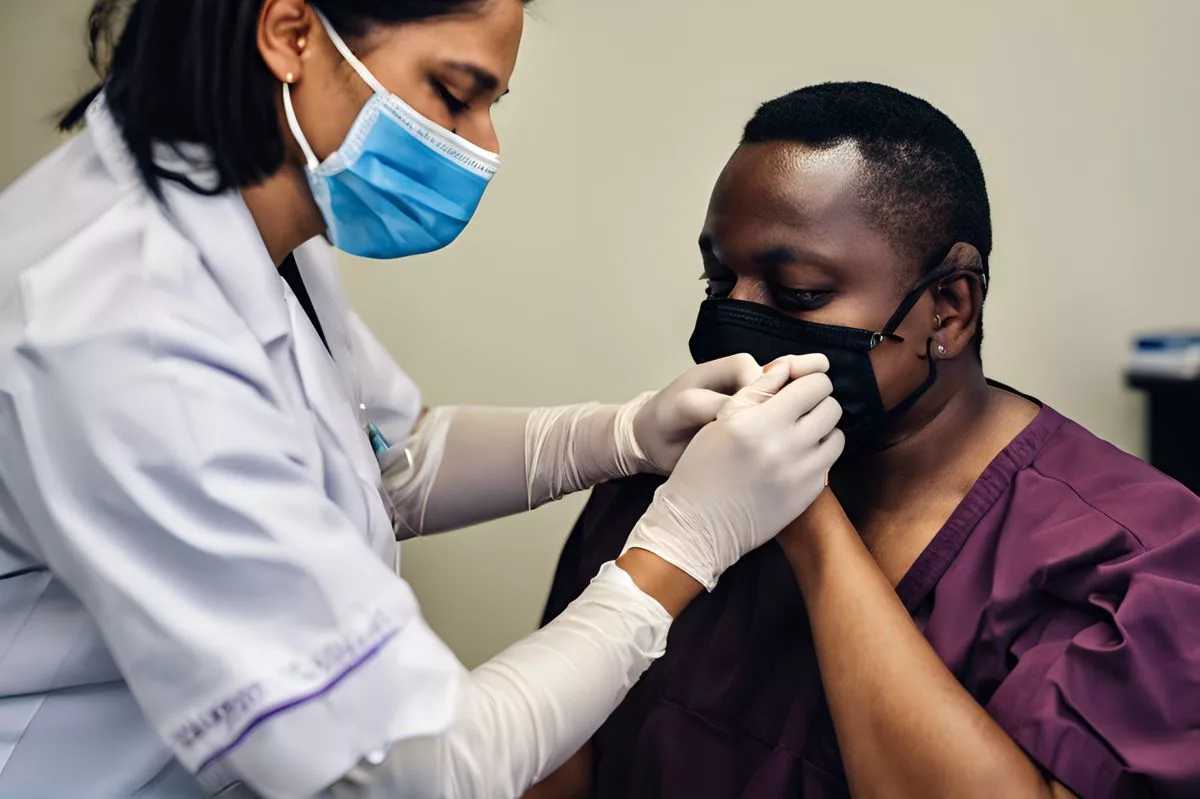The Second Presidential Health Compact in South Africa is a commitment to affordable drugs and vaccines for all, aiming to strengthen the healthcare system’s capacity to safeguard the population from public health crises. The private sector’s involvement is crucial, and the enactment of the NHI Act underscores the urgency of collective action. However, budget cuts, inefficiencies, and corruption pose substantial challenges. The compact is a testament to South Africa’s commitment to conquering these challenges and building on the successes of the initial compact, prioritizing the health of its citizens as its truest wealth.
Charting a New Path Towards Universal Health Care in South Africa: The Second Presidential Health Compact is a commitment to affordable drugs and vaccines for all. The compact addresses challenges faced by the health system and strengthens its capacity to safeguard the population from public health crises such as HIV/AIDS, COVID-19, and other potential threats. The private sector’s involvement is crucial, and the enactment of the NHI Act underscores the urgency of collective action. However, budget cuts, inefficiencies, and corruption pose substantial challenges.
The Heartbeat of the Nation: Health Reforms
In the vibrant capital of Tshwane, at the Union Buildings, important discussions and resolutions constantly shape South Africa’s future. One such landmark event, the signing of the Second Presidential Health Compact, recently took place here. Acting President Shipokosa Paulus Mashatile and leading health sector stakeholders drove this event, symbolizing South Africa’s steadfast dedication to health reform and universal access.
Health is the greatest wealth, a saying by the Roman poet Virgil that reverberates strongly as South Africa aims for prosperity. The health of a nation undeniably intertwines with the health of its people. A sound healthcare system generates higher life expectancy, better quality of life, and overall wellbeing, contributing to the economic strength of the society.
South Africa’s dedication to health reform aligns with the UN’s Sustainable Development Goals, especially the goal of ensuring healthy lives and promoting wellbeing for all, regardless of age. This ambitious vision of universal health coverage is the keystone of the country’s healthcare reform, highlighting the commitment to affordable drugs and vaccines for all.
The Uphill Battle: Strengthening Healthcare Infrastructure
Evolving towards a more robust healthcare system is no easy task. It necessitates addressing the deficiencies of the existing healthcare infrastructure and strengthening its capacity to safeguard the population from public health crises such as HIV/AIDS, COVID-19, and other potential threats. The World Health Organization’s depiction of an effective health system is one that meets the population’s needs, enhances health status, safeguards individuals from ruinous health expenditures, and enables participative decision-making processes affecting their health.
Addressing the issues of South Africa’s public healthcare system has been a top priority since the inaugural Presidential Health Summit in 2018. This initiative resulted from a collaboration between policymakers, academicians, health advocates, and users, culminating in the signing of the first Presidential Health Compact. These stakeholders vowed to support the Department of Health’s endeavors in executing the compact’s nine pillars, set to enhance human resources, access to medicines, health infrastructure, service quality, financial management, and community engagement.
Building on Success: The Second Health Compact
The onset of the second Presidential Health Compact presents a valuable chance to evaluate the progress made since the first compact. Accomplishments are noticeable in many areas, from the creation of new job roles thanks to the Human Resources Training Grant during the COVID-19 pandemic to the broadening access to medicines and medical apparatus. Innovations such as enhanced supply chain mechanisms, streamlined regulatory procedures, and the adoption of technology have significantly modernized the healthcare system.
Collaboration is vital in a diverse country like South Africa to overcome hurdles on the way to universal health coverage. The private sector’s involvement is crucial for strengthening health systems and building their resilience for the future. The enactment of the NHI Act underscores the urgency of collective action. As the country progresses towards implementing the NHI, insights from prior experiences will be priceless in refining standards and guaranteeing quality care in both public and private facilities.
Overcoming Challenges: Budget Cuts, Corruption, and More
The journey towards universal health coverage is not without its hurdles. Budget cuts, a tight fiscal environment, inefficiencies, and corruption pose substantial challenges. However, the Health Sector Anti-Corruption Forum‘s efforts in hastening legal actions and recouping stolen funds are praiseworthy, resulting in reduced litigation costs and a more equitable dispersion of resources.
The second Presidential Health Compact stands as a testament to South Africa’s commitment to conquering these challenges and building on the successes of the initial compact. The onus now falls on the stakeholders to ensure the compact addresses the challenges the country’s health system faces.
Acting President Mashatile’s signing of the second Presidential Health Compact serves as a beacon of trust in all stakeholders’ commitment to prioritize implementation. As South Africa navigates the path to universal health coverage, the nation’s health remains a pivotal aspect of its development. Mismanagement, funding crises, or other challenges will not weaken it. Instead, the relentless pursuit of solutions and collaborative action to implement them will strengthen it. Within this transformative journey, the ultimate measure of the nation’s success will be the health of its citizens, its truest wealth.
What is the Second Presidential Health Compact in South Africa?
The Second Presidential Health Compact in South Africa is a commitment to affordable drugs and vaccines for all, aiming to strengthen the healthcare system’s capacity to safeguard the population from public health crises.
What is the private sector’s involvement in the Second Presidential Health Compact?
The private sector’s involvement is crucial for strengthening health systems and building their resilience for the future.
What challenges does South Africa’s healthcare system face?
Budget cuts, inefficiencies, and corruption pose substantial challenges for South Africa’s healthcare system.
How does South Africa plan to address its healthcare infrastructure deficiencies?
South Africa plans to address its healthcare infrastructure deficiencies by strengthening its capacity to safeguard the population from public health crises such as HIV/AIDS, COVID-19, and other potential threats.
What is the UN’s Sustainable Development Goal regarding healthcare in South Africa?
The UN’s Sustainable Development Goal regarding healthcare in South Africa is to ensure healthy lives and promote wellbeing for all, regardless of age.
What is the Health Sector Anti-Corruption Forum?
The Health Sector Anti-Corruption Forum is an initiative in South Africa aimed at hastening legal actions and recouping stolen funds in the healthcare sector.












